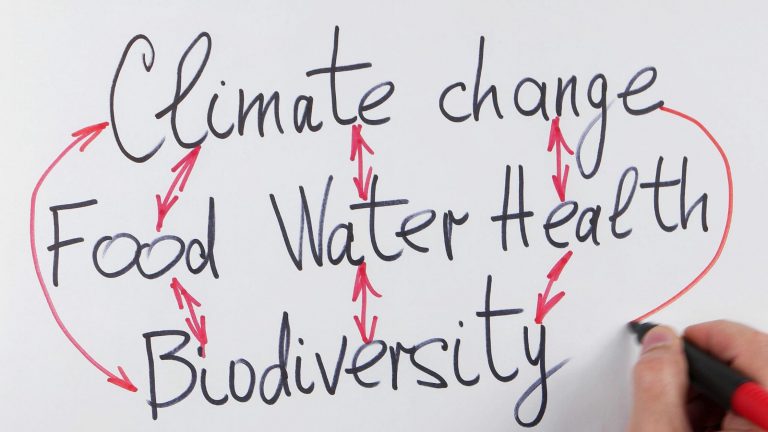One insightful comment on my recent food system manifesto really hit home: a focus on food waste reduction strategies across the food chain would be a valuable addition. This reader is right, especially considering that a staggering 10.7 million tonnes of food waste were generated in 2021 across the food supply chain in the UK. This is about a quarter of the 42 million tonnes of food purchased annually. Of this, perfectly edible food wasted by households alone amounted to 4.7 million tonnes. To put this into perspective, that’s enough to fill Wembley Stadium eight times over!

Food waste isn’t just about excess; it undermines our efforts to create a sustainable, healthy, and just food system. So, why do we waste so much, and what can we do to change this? This article explores the causes of food waste and considers solutions at policy, industry, and individual levels.
Where does food waste happen?
The journey of food waste stretches from farm to fork. Food loss and waste on farms is estimated to be between 15% and 25% of total food waste, primarily due to factors such as fluctuating markets, strict cosmetic standards, and harvesting challenges (including labour shortages and mechanical issues). Market conditions and inflexible contracts also contribute significantly, meaning that a lot of food doesn’t even leave farmers’ fields.
Further along the supply chain, manufacturing accounts for 13% of the food waste, while retail contributes 2%. This is due to overproduction, improper storage, and damage, leading to edible food ending up in landfills. Restaurants, cafes, and other hospitality and food service businesses contribute another 10%, frequently caused by over-ordering, plate waste, and excess food preparation, resulting in unconsumed leftovers. Insufficient infrastructure for surplus food redistribution also means edible items are discarded.
But households are by far the largest source of food waste in the UK, accounting for about 60% of the total. This equates to 6.4 million tonnes annually, meaning that the average UK household throws out about £1,000 worth of food each year, equating to each adult discarding a volume equivalent to their own body weight.
Let’s explore why household food waste happens in the first place.
Why do we waste so much food at home?
Household food waste occurs for many reasons, with psychological, social, physical, and temporal dimensions. These include a lack of meal planning skills or time constraints leading to insufficient advanced meal planning. Related to this, impulse buys and overstocking fridges frequently result in food spoiling before it can be used.
Many homes lack the space to store food, making it difficult to identify what is already available. Different meal preferences among family members can lead to excess food being prepared or unwanted leftovers. Our expectations about how much we should eat also play a role. Restaurants, ready meals, and recipes often supersize servings, affecting our ability to judge serving sizes.
These problems are structural, products of social dynamics and culture. They are also rooted in policy and practice in other parts of the food chain. Date labels like “use by” and “best before”, in particular, create confusion about food safety and lead many to toss out safe-to-eat food prematurely.
Many supermarkets also package fruit and vegetables in bulk, leading to discarded items at home. When only a single item is needed, being able to buy loose fruit and vegetables could reduce waste (and unnecessary packaging). Promotional offers, like buy-one-get-one-free, also encourage over-purchasing. These apparently economical offers often lead to excess food that households do not consume.
The true cost of food waste
Food waste has a significant, direct impact on the economy, the environment, and the wellbeing of our communities.
Let’s start with the economic toll. Households in the UK discard a substantial amount of food which could have been consumed. Financially, this translates to a staggering £22 billion in wasted resources. That’s a direct hit to household budgets, and the ripple effects drive up food prices for everyone. Additionally, food waste on farms is valued at £1.8 billion, representing a sizeable economic loss and reducing farm profitability by 20%.
The environmental costs are also alarming. When food decomposes in landfills, it releases methane, a potent greenhouse gas that significantly contributes to climate change. Wasteful practices drain precious resources like water and land that went into producing food that never gets eaten. Globally, 8–10% of all greenhouse gas emissions are estimated to stem from food waste. In the UK, household food waste alone generates 18 million tonnes of CO2 annually, accounting for 3% of the nation’s total carbon footprint.
An estimated 15% of UK households—8 million adults and 3 million children—are living with food insecurity, without reliable access to sufficient affordable, nutritious, healthy food. Meanwhile, in the UK we discard enough edible food annually to provide over 15 billion meals—enough to feed the entire population for 11 weeks, or all the households facing food insecurity for well over a year! This stark contrast highlights the need for systemic change to reduce waste and ensure that everyone has access to sufficient, nutritious food.
The solution is change at every level
While progress has been made—with the UK achieving a 21% reduction in per capita food waste between 2007 and 2018—there’s much further to go to reach the UN Sustainable Development Goals target of a 50% reduction by 2030.
Households: The power of everyday habits
Change can start at home, where our everyday food habits make a real difference. Simple actions like meal planning, creating shopping lists to avoid impulse buys, and storing food correctly can all make a difference. Get creative with leftovers and transform them into new dishes or freeze them for later.
Individual actions are essential to tackle food waste, but wider and faster change is only possible with the right structural support. Government policies can play a crucial role in empowering households to reduce waste. For example, campaigns like “Love Food Hate Waste” can raise awareness about the issue and provide practical tips for reducing waste, helping shift the cultural mindset around food, and fostering greater respect for the resources that go into its production.
Policy levers can also be used to standardize date labelling, helping to reduce confusion and to prevent safe food from being needlessly discarded.
Industry action: The business of tackling food waste
The food industry has an important role to play in reducing food waste, too. Businesses can take actions to minimize waste at every stage of the supply chain. For example, supermarkets can embrace the sale of “wonky” produce (which I explored in a previous article), sell more loose fruit and veg, and partner with food redistribution organizations to sell discounted food.
Voluntary agreements like the Courtauld Commitment have led to some improvements from within industry, but stronger regulatory measures could bring deeper change. A level playing field is critical here, and policy interventions are essential for this. In my manifesto, I proposed mandatory public reporting by food companies on key health and sustainability metrics. Mandatory food waste reporting should be included. Government commitments to restrict multi-buy offers should be implemented—to reduce waste and improve our health. Combining voluntary initiatives with supportive policies can create a food industry that is profitable, environmentally responsible, and supports our wellbeing.
Policy levers: Setting the stage for change
Individual actions and food industry initiatives are crucial to reduce food waste, but as I argue in my manifesto, to truly transform our food system we need policy interventions across the system that enable lasting and more impactful change.
Setting ambitious food waste reduction targets for the food industry can provide clear direction and encourage adoption of more sustainable practices across the supply chain. On farms,addressing some of these systemic issues requires policy changes to help farmers mitigate losses, including ensuring fair contracts and support for seasonal workers.
Improved infrastructure and policies for surplus food donations can also help reduce waste.Business partnerships with food redistribution organizations can be incentivized, bringing a win–win, diverting edible surplus from landfills while addressing one aspect of food poverty. France and the Czech Republic have demonstrated that bold regulations are possible with their policies requiring unsold food to be donated.
Landfill bans on food waste, like those implemented in Scotland and some US states, create a powerful incentive to explore alternatives like composting. Investing in research and innovation can help us find new ways to preserve food and transform by-products into valuable resources.
The last bite: A call to action on food waste
Tackling food waste is a shared responsibility and a triple win—protecting our environment, helping to reduce hunger, and making our food system more effective and just. The actions of individual people or businesses matter, but systemic change is essential for lasting impact.
As citizens, we have a powerful role to play. By changing our habits and choices, we demonstrate that reducing food waste matters. And by raising our voices, we can push for the bold policies needed to transform our food system. Whether you start composting at home, create a weekly meal plan and shopping lists, or write to your MP about food waste laws, every action counts.
The power to end food waste lies in our hands—in the daily choices we make and the collective changes we demand. Together, we can build a future that minimises food waste so that every bite nourishes our communities.
I write about the future of food and the connections between our food systems, the environment and public health. Sign up for my newsletter.
You can also read more here.






